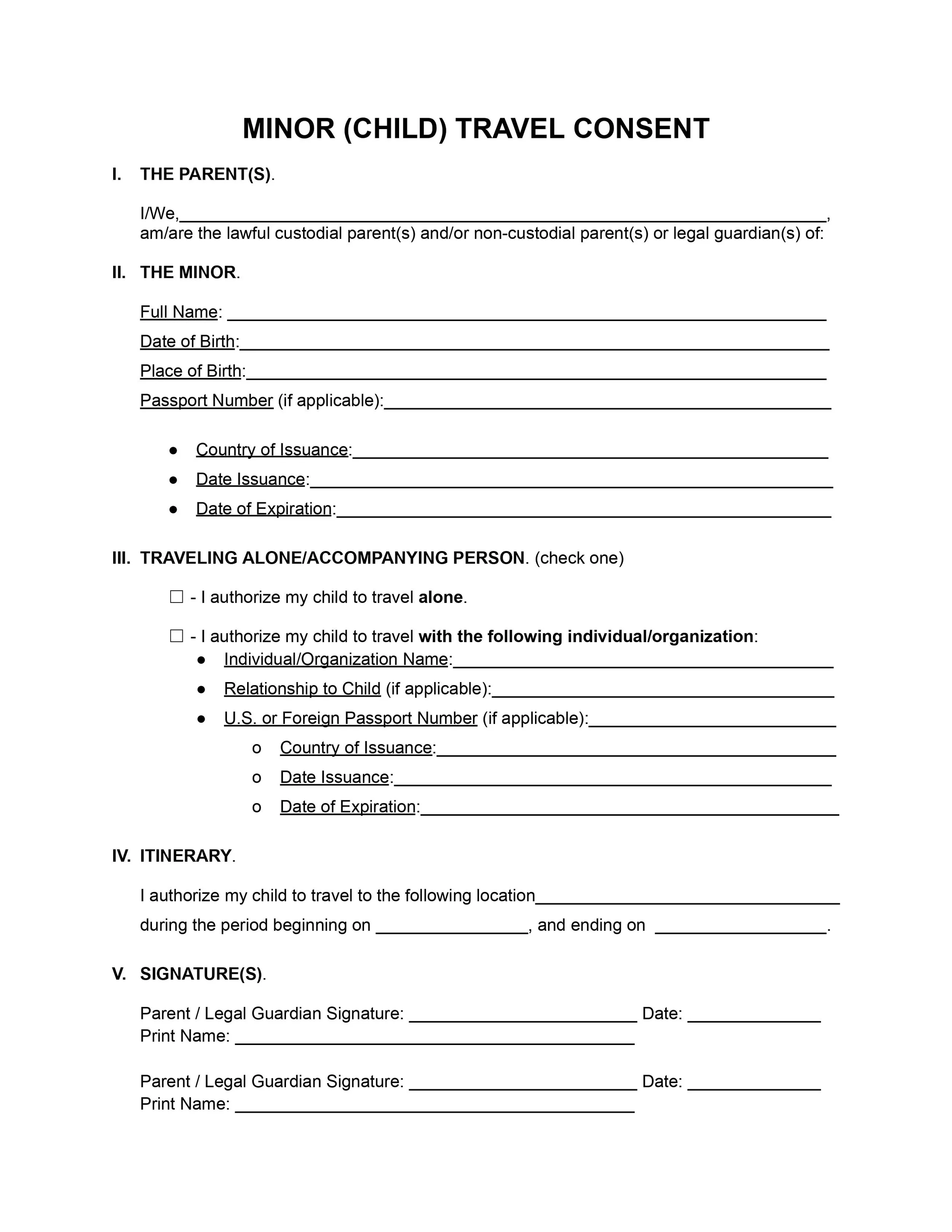Notarization and Apostille of a Child Travel Consent Form
1. What is a Child Travel Consent Form?
A Child Travel Consent Form is a legal document that allows a minor (under 18 years old) to travel without both parents or legal guardians. This authorization is recommended if a child is traveling:
Alone
With one parent
With another trusted adult
This form is also referred to as:
Minor Travel Authorization Letter
Parental Consent for Minor to Travel
Travel Permission Letter for Child
Affidavit of Consent for Travel Abroad
Consent to Travel Letter
This form is especially important for international child travel. U.S. federal law prohibits a parent from removing a child from the country or keeping a child abroad with the intent to interfere with another parent’s custody rights. This offense is called international parental abduction.
2. When Does a Child Need a Travel Consent Letter?
Situations that require a notarized child travel consent letter include:
The child is traveling by themselves
Traveling with only one parent
Parents are traveling separately on different parts of the trip
Child’s last name is different from their parents’
Child is traveling with a school, sports team, or organization
Many foreign countries require a consent form. Before traveling, check the embassy or consulate of your destination country. Some require that the letter be notarized or even apostilled/legalized before acceptance.
According to U.S. Customs and Border Protection (CBP):
Unless both parents are present, the child must carry a notarized letter of consent signed by the non-traveling parent(s).
3. What Information Should Be Included?
A Minor Travel Consent Form typically contains:
Child’s full legal name and date of birth
Names and contact information of parents/guardians
Trip details (destination, dates of travel)
Information about the accompanying adult, if applicable
You can draft your own or use an editable Child Travel Consent Letter Template with state-compliant notarial wording.
4. Is a New Consent Letter Required for Every Trip?
Yes, usually. The letter is valid only for the trip listed in the document. For multiple trips, a new letter should be prepared.
5. What if One Parent Refuses to Consent?
If one parent refuses, the other parent can seek a court order to grant travel authorization.
6. What if the Parent Has Sole Custody?
The traveling parent should carry supporting documents such as:
Custody orders
Birth certificate showing only one parent
Death certificate of the other parent
Notarized affidavit confirming custody
7. How to Notarize a Child Travel Consent Form?
The form should be signed before a notary public. Many banks and local notary services provide this for free or at a small fee. Proper notarization should include all required notarial elements for validity.
8. Apostille or Authentication of the Consent Form
Whether you need an apostille or an authentication certificate depends on your destination country:
Apostille – For countries that are members of the 1961 Hague Apostille Convention (e.g., France, Germany, Spain). A state-level apostille is sufficient.
Authentication/Legalization – For countries outside the Hague Convention. The process usually includes:
Authentication by the state’s Secretary of State
Authentication by the U.S. Department of State (if required)
Legalization at the embassy/consulate of the destination country
Because this process can be complex, many parents choose to hire a professional apostille service to ensure compliance.
Conclusion
A properly prepared Child Travel Consent Form ensures smooth travel and avoids complications at border control. For international travel, check whether the form needs to be notarized, apostilled, or legalized depending on the destination country.
In addition to child consent letters, apostille services also cover birth certificates, marriage certificates, educational records, and corporate documents.

